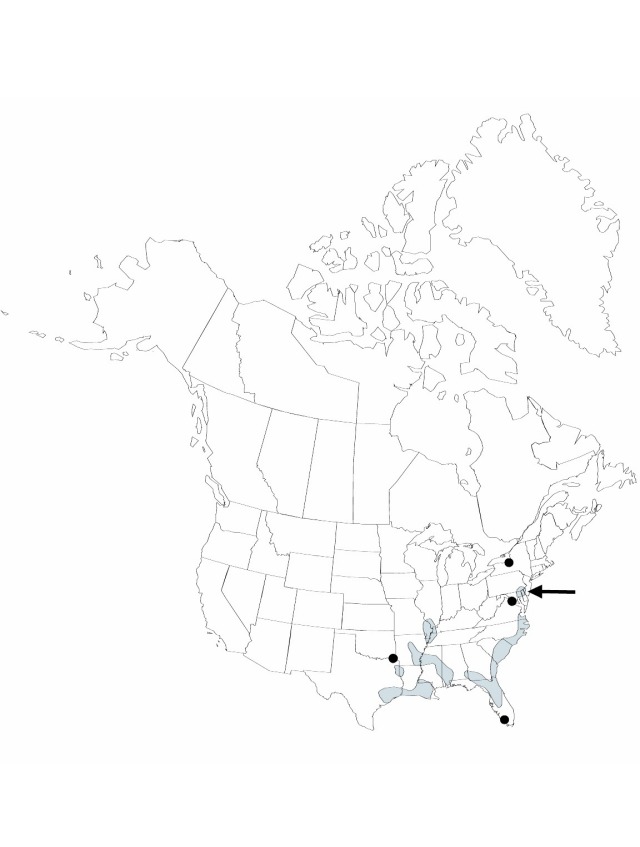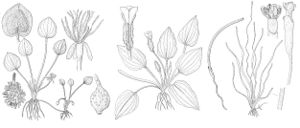Difference between revisions of "Limnobium spongia"
Nomenclator Botanicus. Editio secunda 2: 45. 1841.
imported>Volume Importer |
imported>Volume Importer |
||
| Line 61: | Line 61: | ||
|publication year=1841 | |publication year=1841 | ||
|special status=Illustrated;Endemic | |special status=Illustrated;Endemic | ||
| − | |source xml=https:// | + | |source xml=https://bitbucket.org/aafc-mbb/fna-data-curation/src/2e0870ddd59836b60bcf96646a41e87ea5a5943a/coarse_grained_fna_xml/V22/V22_424.xml |
|genus=Limnobium | |genus=Limnobium | ||
|species=Limnobium spongia | |species=Limnobium spongia | ||
Latest revision as of 20:31, 5 November 2020
Herbs, to 50 cm. Roots branched; stolon buds with 10 or more roots. Leaves floating or emersed in dense vegetation and when stranded; blade 1–10 × 0.9–7.8 cm; primary veins forming 30–80° angle with midvein, ascending, aerenchyma extensive, nearly margin to margin, individual aerenchyma space (located ca. 1 mm from either side of midvein) , 0.4–1.6 mm wide, 1 mm from midveinacross its longest axis. Flowers: staminate flowers with 9–12(–18) stamens; pistillate flowers with 3–4 petals; ovary 6–9-carpellate, locules 6–9; styles 2-fid nearly to base; ovules 200. Fruits 4–12 mm diam.
Phenology: Flowering summer–fall.
Habitat: Floating on slow-moving water of streams, bayous, and lakes or stranded along shore
Elevation: 0–100 m
Distribution

Ala., Ark., Del., Fla., Ga., Ill., Ky., La., Md., Miss., Mo., N.Y., N.C., Okla., S.C., Tenn., Tex., Va.
Discussion
No specimens have been seen from New Jersey, but although the species is to be expected there.
Limnobium spongia has two leaf forms, often on the same plant. The floating leaves have a thick layer of aerenchyma on the abaxial surface; the emersed leaves lack such tissue. Flowering and fruiting are predominantly on individuals with emersed leaves. Following pollination, the peduncle becomes recurved, forcing the developing fruit below the water surface.
Selected References
None.
